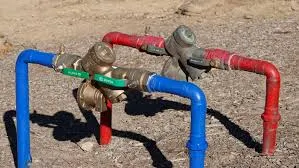Do All Sprinkler Systems Have A Backflow Valve?
Automatic sprinkler systems are essential for homeowners who want to keep their lawns and gardens lush and beautiful. All of this is possible with a sprinkler system while saving time and minimizing water waste. In particular, underground sprinkler systems conserve time, money, and water, making them an excellent investment. This article explains what a backflow valve is and the risks associated with not installing one on your home sprinkler system.
Do all sprinkler systems have a backflow valve?
People who are contemplating installing an automatic sprinkler system will quickly learn that sprinkler systems are technically complex and difficult to install. When deciding which sprinkler system is best for your yard, you must consider a number of factors. Included in this factor is the type of soil you have. In addition, there are unexpected safety considerations.
Someone will sooner or later suggest that your irrigation system requires a backflow valve or backflow preventer. Occasionally, you may hear that your safety depends on it. Do sprinkler systems always include a backflow valve?
No, it's your job to make sure that any sprinkler system you put in has a way to stop water from flowing backwards.
What is Backflow in Sprinkler Systems?
As convenient as automatic sprinkler systems are, let's take a moment to appreciate all the processes involved in irrigation. A water meter is installed to monitor your water consumption as your property's water supply line branches off from the local water main. The sprinkler system is disconnected from your home's water supply. This makes a separate part of the system that can be turned on and off with a shut-off valve.
Your home's water supply remains connected to your automatic sprinkler system despite the presence of the shut-off valve. Your sprinkler system's water may come into contact with a variety of contaminants, ranging from pesticides to bacteria found in the soil. It is possible for contaminants to enter the water you drink, cook with, and brush your teeth with. This poses a serious safety risk.
Therefore, the installation of a backflow prevention device is required. Backflow prevention valves prevent water from reentering the water supply that supplies your home. Backflow preventers maintain the potability of drinking water.
Do All Sprinkler Systems Have Backflow Valves?
This may or may not pose a problem. Some residences use well water or collected rainwater to "fuel" their irrigation systems, while city water is used to supply the residence. The same possibility of backflow exists here. However, if the water becomes contaminated, you will not drink it.
If your automatic sprinkler system uses the same water source as your home's water supply, typically the city main, the situation is different. In this instance, failure to install a backflow prevention system constitutes a violation of the building code. Failure to install a backflow valve can lead to severe illness. This is not an abstract concept.
There are a variety of backflow preventers available for automatic sprinkler systems. It is important for purchasers to investigate which systems meet their needs. The cost of backflow preventer systems can vary based on the complexity of the system. If you aren't sure what kind of backflow system you need, you should talk to a professional and have them install the system for you as well.

